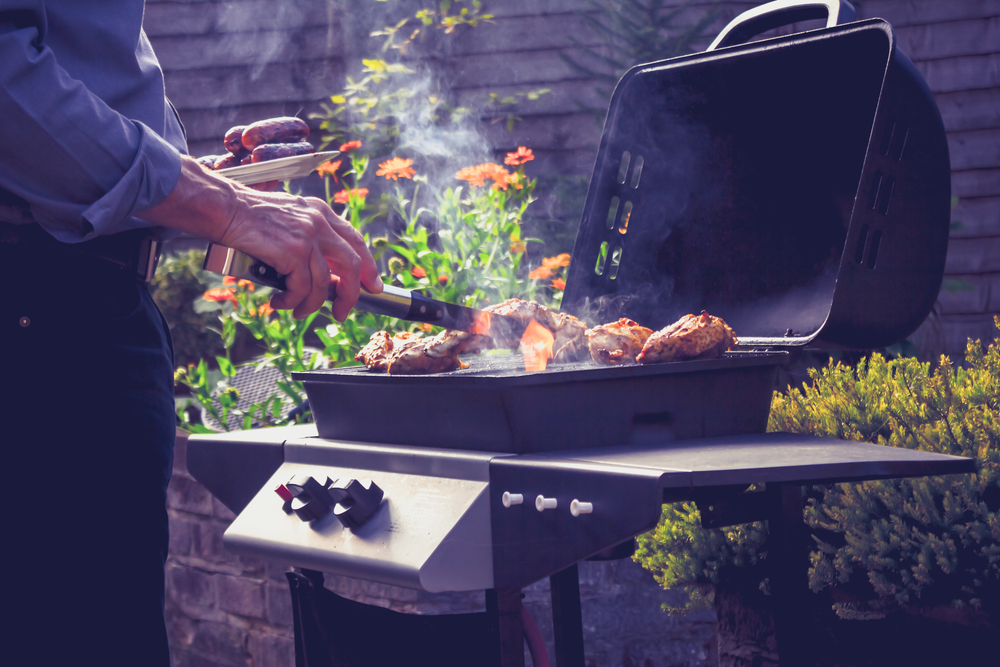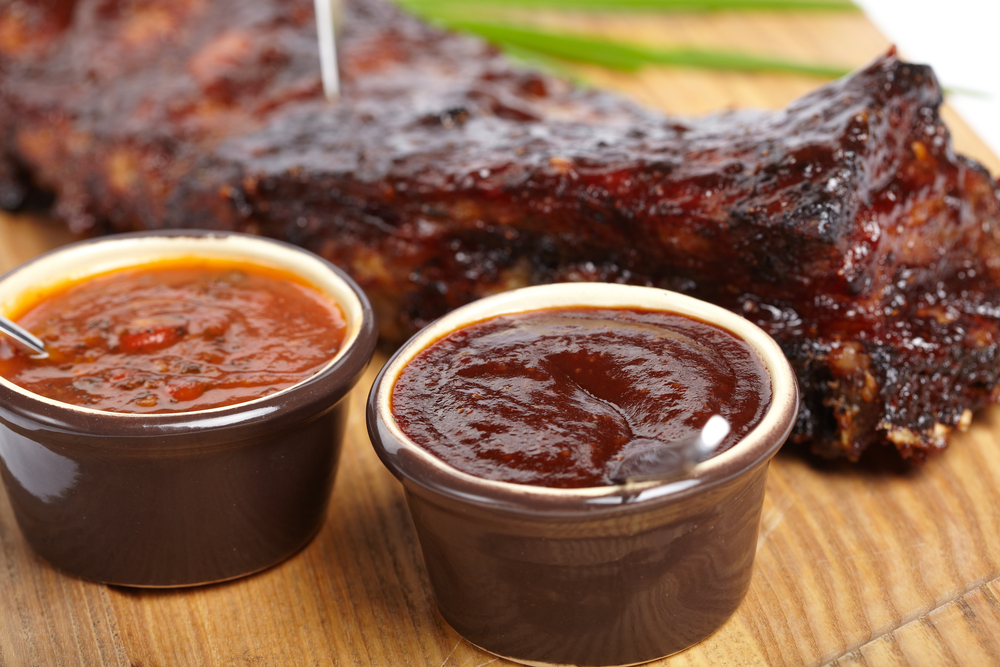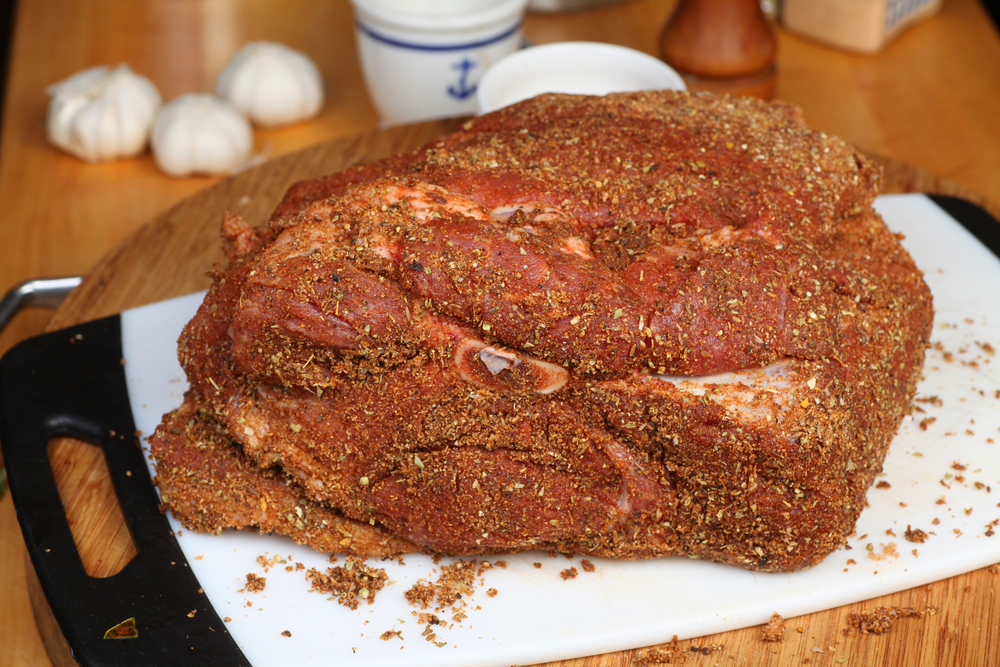Food
Sassy bourbon and brown sugar barbecue sauce
Barbecue sauce is a very personal thing. For some, it means a thick, sweet red sauce. For others, it is mustard-based. For those who grew up in North Carolina like I did, it’s vinegar-based. Regional differences aside, these days barbecue sauces are made from everything from blueberries to espresso to orange juice, maple syrup, tequila and beer.
And I love them all! The term “barbecue sauce” has become a catch-all for a quick sauce to go on meat, poultry and fish, either as a finishing glaze or a dipping sauce, and truly anything goes!
On the competitive barbecue circuit, most teams start with their favourite store-bought barbecue sauce, then doctor it with “secret” ingredients. Favorite add-ins include bourbon, brown sugar, squeeze margarine, honey, maple syrup, soy sauce, beef bouillon and a healthy dose of the spice rub that already is used on the meat.
Doctoring up a purchased product is one way to get a personalized barbecue sauce. But my preference is to start from scratch. That way you don’t have to spend time covering up anything you don’t like. Instead, you can layer on the flavours you love. And you’ll be shocked by how easy it is.
The most popular barbecue sauces start out with a base of tomatoes. I like to use crushed tomatoes because they are uniform and already broken down. If I want the sauce to have a more savory flavour, I sweat some aromatics, such as onions and garlic, before adding the crushed tomatoes. If I am looking for a lighter sauce or glaze that complements the food without covering up the natural flavours, I start simply with the tomatoes.
After that, the most important thing to keep in mind when you make your own barbecue sauce is to make sure the sweetness is offset by an acidic ingredient, such as vinegar, wine or citrus juice. You want to make sure there is a perfect balance of sweet, salty and tart notes.
If you will be using the sauce as a glaze, you need to make sure to add enough liquid to make it easy to brush on, and you need to add enough sugar so it will caramelize as it cooks. Caramelization is key to a great barbecue sauce. But sugar cooks very quickly, so brush barbecue sauce on the food only during the final 10 minutes of the cooking time. Otherwise, the sugars will burn before the food is cooked.
And if you want the familiar barbecue sauce flavour, don’t forget the Worcestershire sauce. The tamarind in the Worcestershire sauce is what we all associate with that classic flavour.
SASSY BOURBON AND BROWN SUGAR BARBECUE SAUCE
This sauce (and the classic spice rub that goes with it) is great on ribs, chicken, pork and hearty fish, such as salmon and catfish. I’ve also used it on portobello mushrooms, charred onions and slabs of grilled potatoes!
Start to finish: 50 minutes
Makes 4 cups
28-ounce can crushed tomatoes
1 cup firmly packed brown sugar
2 tablespoons molasses
1/2 cup bourbon
1/2 cup Ketchup
1/4 cup chili sauce (such as Heinz)
1/4 cup cider vinegar
2 tablespoons red wine vinegar
1/4 cup Worcestershire sauce
1 tablespoons classic spice rub ( recipe below)
1 tablespoon unsweetened cocoa
In a large saucepan over medium, combine all ingredients. Stir well, then simmer for 30 minutes, or until the sauce has thickened. Let stand off the heat for 10 minutes, then transfer the sauce to a blender. Puree until very smooth. The sauce can be refrigerated in an airtight container for 2 weeks.
Nutrition information per 1/4 cup: 120 calories; 0 calories from fat (0 per cent of total calories); 0 g fat (0 g saturated; 0 g trans fats); 0 mg cholesterol; 400 mg sodium; 24 g carbohydrate; 1 g fiber; 21 g sugar; 1 g protein.
CLASSIC SPICE RUB
The best barbecue starts and ends with a great dry rub. This recipe is my favourite. I use it as one of the key ingredients in my barbecue sauce. But I also like to sprinkle the dry rub directly on the meat prior to cooking (and basting with the sauce). That way you get a double dose of this great rub.
Start to finish: 5 minutes
Makes 3/4 cup
1/4 cup packed brown sugar
1 tablespoon sweet paprika
1 tablespoon smoked paprika
1 tablespoon ground black pepper
1 tablespoon ground white pepper
1 1/2 tablespoons kosher salt
2 teaspoons garlic powder
2 teaspoons onion powder
1/2 teaspoon cayenne pepper
In a small bowl, combine all ingredients, mixing until evenly blended. Can be stored at room temperature in an airtight container for up to 6 months.
Nutrition information per tablespoon: 25 calories; 0 calories from fat (0 per cent of total calories); 0 g fat (0 g saturated; 0 g trans fats); 0 mg cholesterol; 720 mg sodium; 7 g carbohydrate; 1 g fiber; 5 g sugar; 0 g protein.
Elizabeth Karmel is a barbecue and Southern foods expert. She is the chef and pitmaster at online retailer CarolinaCueToGo.com and author of three books, including “Taming the Flame.”
























